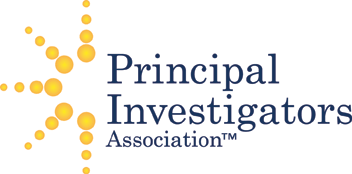|
NOW AVAILABLE IN PRINT!
Multi-methods research refers to the use of two or more research methods to understand a problem. In health and human services research for practice, methods might include quantitative research, clinical research, laboratory research, qualitative methods, geographical mapping, social network analysis, and any number of other methodological techniques. Choosing an appropriate mix of methods is only the first step in running a successful multi-methods project. In order to get the most from the chosen methods, the project needs to involve a team of experts on each method. That team also needs to develop an effective way to work together.
.
This comprehensive guide provides an overview of how to effectively use multi-methods team research to achieve applied or translational goals. The guide will focus particularly on projects that translate research into practice or evaluate existing programs or policies.
.
|
“The most successful projects engage practitioners and the end users of potential
products in the process from the start. By including practitioners and consumers in
multi-methods, translational projects, researchers keep the ultimate outcomes of the
project front and center. Practitioners and consumers also help researchers target
their research to get at what really matters in the field.”
- Dr. Jo Anne Schneider, Author
|
Inside this 155-page guide, you will find expert guidance for:
- The various methods used in multi-methods projects and successful ways to combine them
- Best practices in translational research, and how you can apply these effectively
- Insider tips to develop a compelling proposal for multi-methods applied or translational research
- Strategies to run an A+ multi-methods applied or translational project
- Ways to successfully partner with practitioners to translate research into practice
- Plus much more!
About the Co-Author:
Dr. Jo Anne Schneider has been designing and implementing multi-
methods research projects since the early 1980s, many with research to practice components. She has equal training in quantitative and qualitative methods, with experience working with large, quantitatively oriented government contract firms like Westat and developing multi-method team projects at multiple universities. She is a specialist in urban issues, social welfare, health and human services, and health projects with hard to reach populations. She has engaged in a number of multi-methods translational projects, including developing welfare to work programs and developing a dissemination model for NIH. She has worked with a combination of government, foundations, national member benefit non-profits, community based organizations, faith communities and marginalized communities (people of color, immigrants/refugees, low income communities, people with disabilities), using multiple methods in all of her projects. A former American Association for the Advancement of Science Policy and Technology Fellow at NIH, she is currently an Associate Research Professor at George Washington University. Recent major projects include the Faith and Organizations Project (www.faithandorganizations.umd.edu), and multiple projects related to social welfare and human services. Relevant publications include Schneider, J.A. (2006). Special Issue Introduction and Using multi-methods ethnography to promote quality service and understand interactions among organizations: Examples from the Kenosha social capital study and neighborhood settlement house needs assessment and evaluation. In J.A. Schneider (Guest Editor), Research methods best practices. Nonprofit Management and Leadership, 16(4) 387-394 and411-428; Schneider, J.A. (2006) Appendix A, Social Capital and Welfare Reform, New York: Columbia University Press,
375-388.
Limited-Time Offer:
Purchase this 155-pg. guide in PDF format for only $249 $179.
Print version only $35 more.
You will automatically receive a PDF (digital) copy when ordering print.
If you order a print version, please allow 7-10 days for delivery (US and Canada only).
Delivery times for other countries will vary based on your location and cannot be controlled by us.
If you order a PDF version, it will be available immediately after purchase.
Regarding Print version shipping costs:
Shipping and Handling to the US and Canada: FREE
Shipping and Handling to the all other International countries: $50.
100% Satisfaction Guaranteed. |


